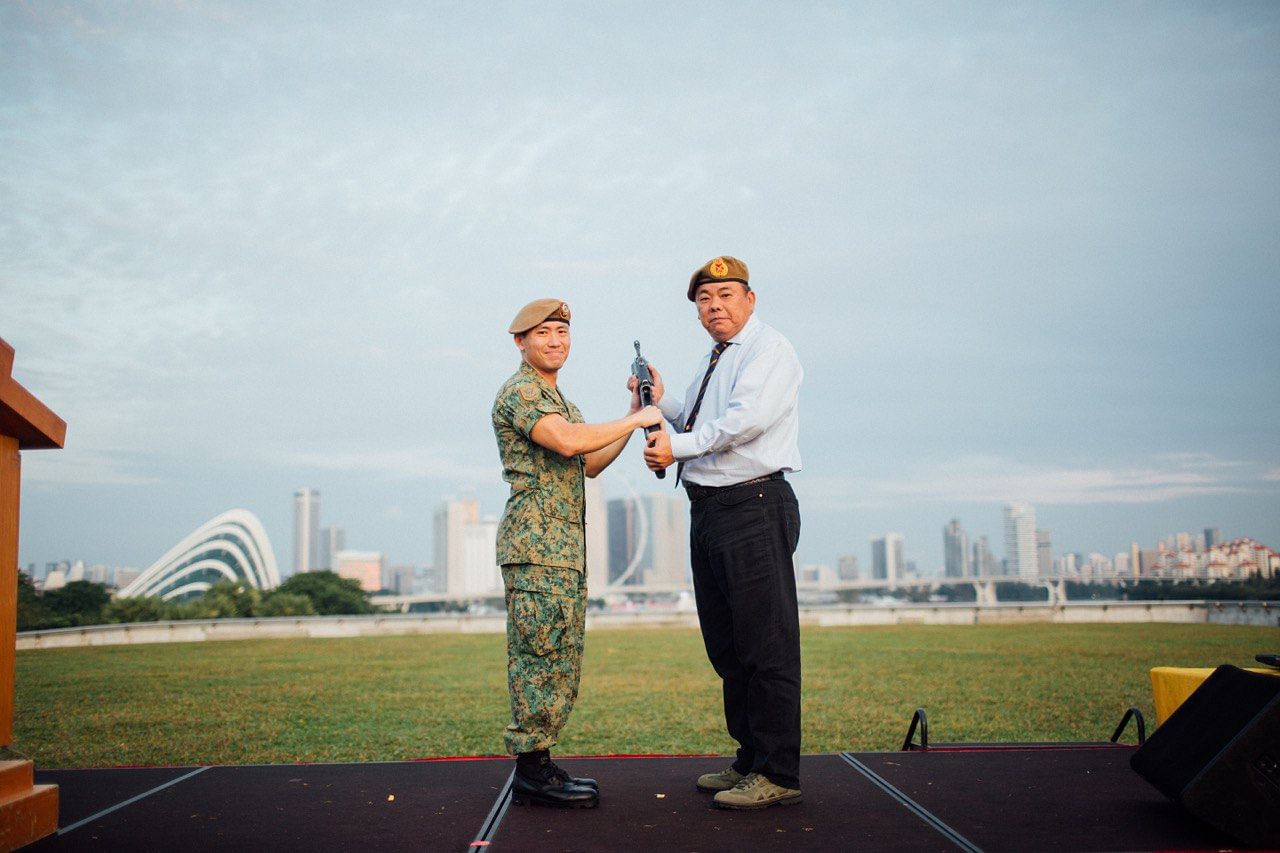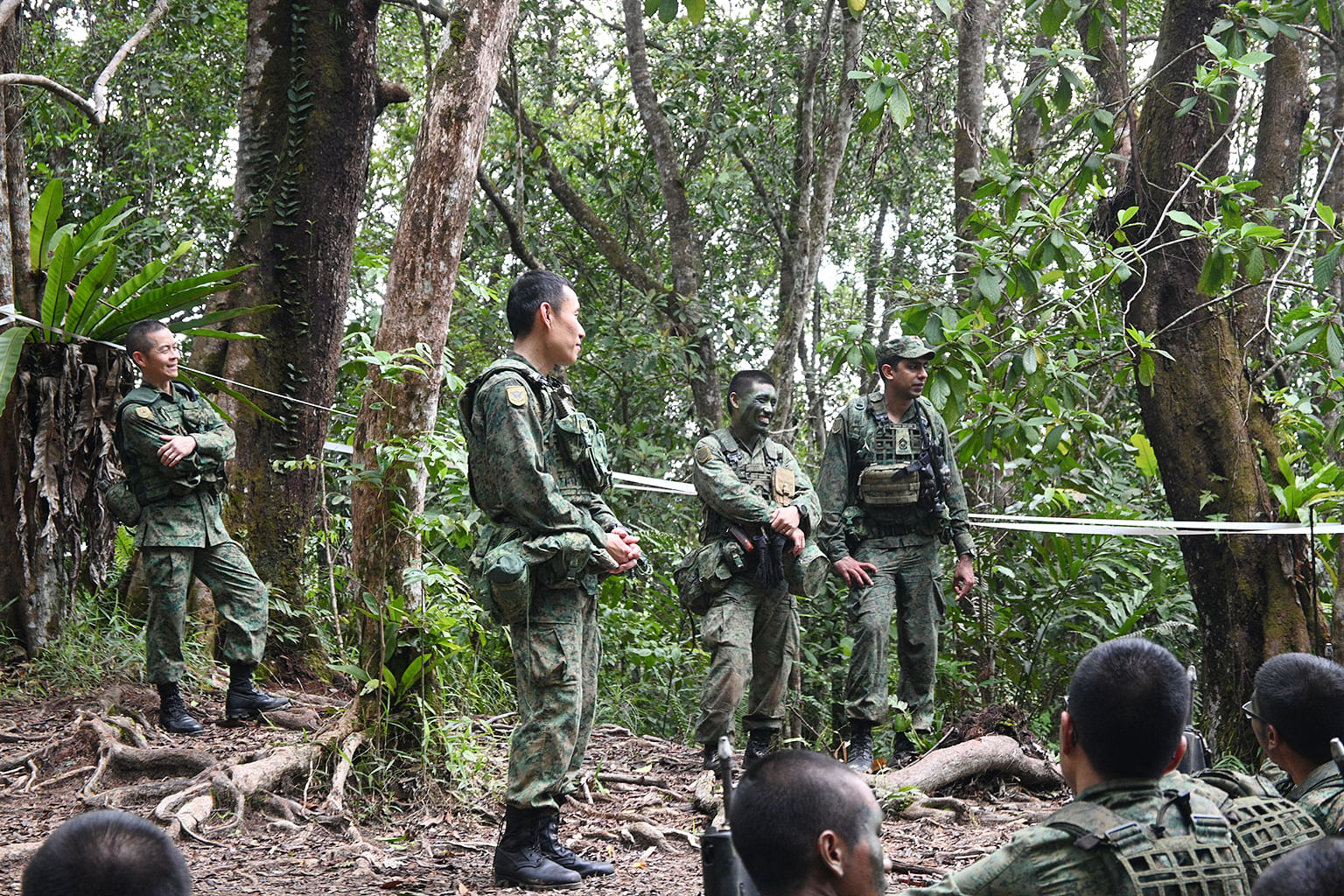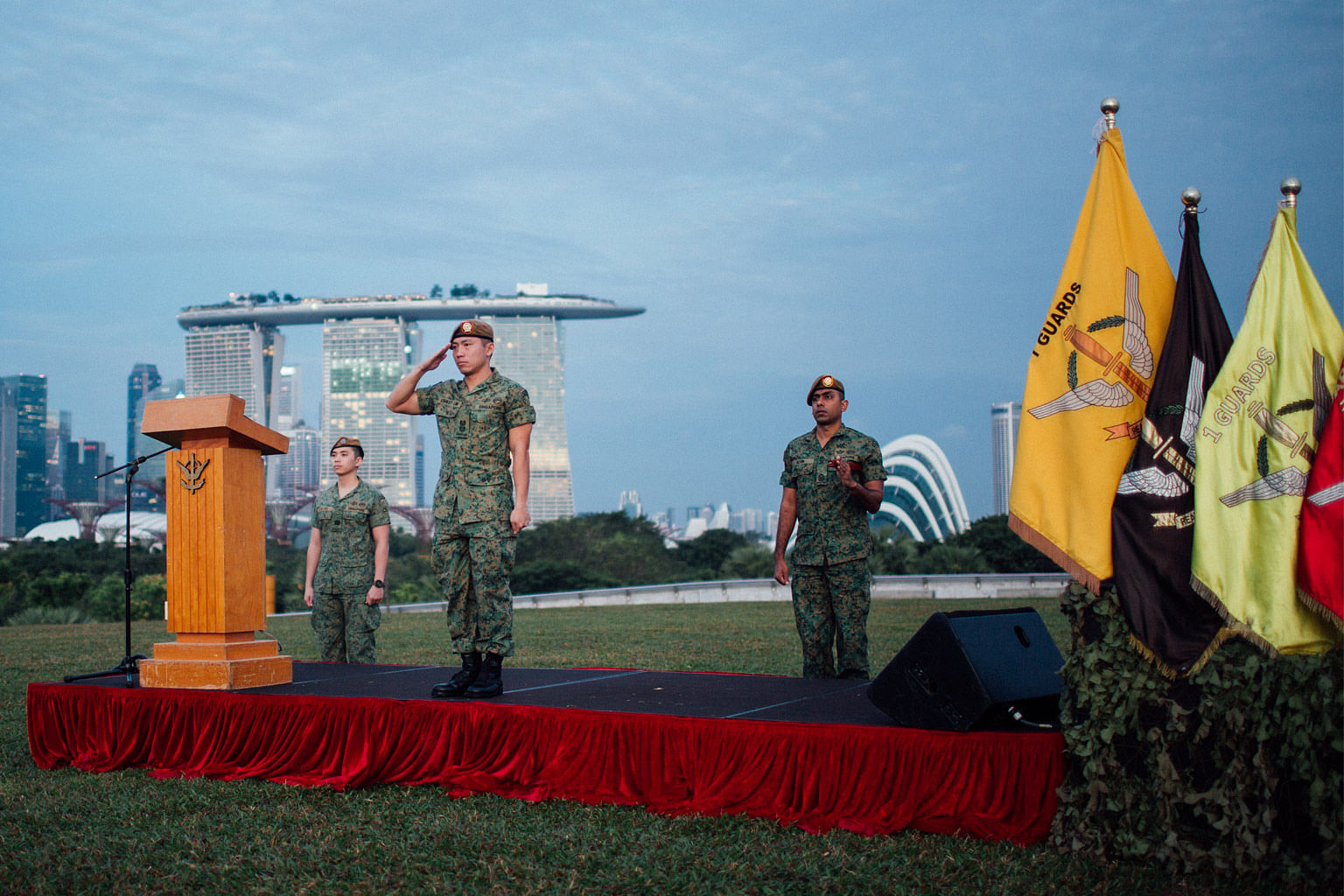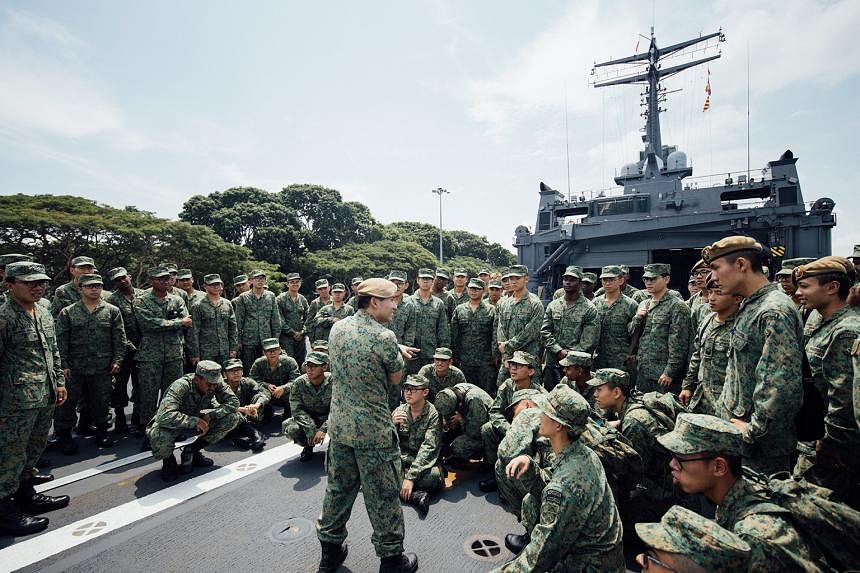He was part of the team that rolled out the nationwide Covid-19 vaccination programme, winning a Commendation Medal for his contributions. He also played a role in the renewing of a bilateral defence relationship agreement with India. Not to mention the policies he has helped shape.
These are among the varied roles Lieutenant Colonel (LTC) Stanley Lim, 33, has taken on during his years of service with the Singapore Armed Forces (SAF). Clearly, his career is far from what most people expect of a typical military life.
The many hats he has worn is also a reflection of the dynamic nature and varied leadership opportunities a career with the Army provides. No two postings are the same, but LTC Lim says this is what keeps his career exciting.
“One posting you may be like a teacher or trainer, the next posting you are dealing with high-level defence policies and in another posting you could be managing stakeholders.”

During the height of the pandemic in 2020, he was seconded to the Ministry of Health (MOH) where, among other things, he worked with officers from other agencies and ministries.
“I got the chance to work very closely with the leadership at the MOH, civil service and even with our ministers and the Cabinet,” he says.
LTC Lim's undergraduate degrees in biology and business (focusing on healthcare management) and postgraduate in biotechnology came in useful during that period as it helped him bridge the technical and scientific considerations with operational concerns.
“I was able to quickly comprehend the healthcare system in Singapore and better understand some of the discussions regarding Covid testing, isolation and quarantine protocols as well as public health considerations.”
Another highlight of his career was being part of the team that renewed a bilateral agreement allowing the Singapore Army to continue to train and exercise in India for another five years. LTC Lim helped ensure the Army’s interests were represented and protected during the negotiations.
Transformative power of leadership
Joining the SAF was a decision that was years in the making for LTC Lim.
His mother used to serve with the SAF in an administrative position and took him to Army open houses when he was a child.
LTC Lim was also in the National Cadet Corps (Land) and Student Council in secondary school and junior college.
He says he was drawn to the uniformed group instead of sports as it gave students a level of autonomy that allowed them to hone their leadership skills.
“When you're in a position of leadership you influence people towards a certain outcome and I find it very fulfilling,” he explains.

His first leadership role in the Army included four years as Platoon Commander for two Guards units and two years as Officer Commanding of the Army Deployment Force, a high-readiness unit that provides specialised capabilities for operations, including rapid response to terrorism.
He then spent two years as a policy officer at the Ministry of Defence’s (Mindef) Defence Policy Office. It was during this time, at age 30, that he saw the bigger impact and direct influence of his work in shaping the direction of Singapore's defence establishment.
As a young staff officer, the strategy papers that he wrote on defence diplomacy and charting Singapore’s defence engagements with its foreign partners went on to become policies that guided Mindef and SAF’s direction.
“I didn't think I'd be able to make a tangible impact at such a young age,” says LTC Lim.
Guiding future generations
Today, as the Commanding Officer of the 1st Battalion Singapore Guards, LTC Lim's influence extends to nurturing the next generation of soldiers.
“I am in charge of around 600 soldiers and I train them, grow them, assess them, discipline them if necessary, and importantly, return them home to their families safely at the end of their National Service (NS),” says LTC Lim.
He acknowledges that the present generation demands adaptability not only in strategy but also in training methods. In this regard, he and his team have found new ways to train soldiers using the latest science and technology.

Adopting up-to-date tech such as wearable devices, Army training today maximises each soldier's performance according to their different strengths and skill sets.
“We have moved away from standardising the individual towards individualising the standards because we recognise that everyone is different and we need to cater to different ways of training them,” says LTC Lim.
He hopes this new approach will resonate with young soldiers who recognise that their distinct skills contribute to Singapore's collective strength.
LTC Lim’s commitment to infuse deeper meaning into the NS experience for each soldier can be seen in various ways, including a ground-level initiative he recently spearheaded – moving the NS weapon presentation ceremony from Pulau Tekong to The Float @ Marina Bay.
“By facing the Singapore skyline while receiving their weapons, I wanted the soldiers to have a very clear reminder why they are serving in the Army and what their fathers and grandfathers have built over the last 60 years," he says.
"When we are living in peace, we lose some of the significance of why we are serving NS, so by being a bit more purposeful and deliberate with such events, we can give greater meaning to what the soldiers are doing.”
For more information visit the Mindef Scholarship Centre.


